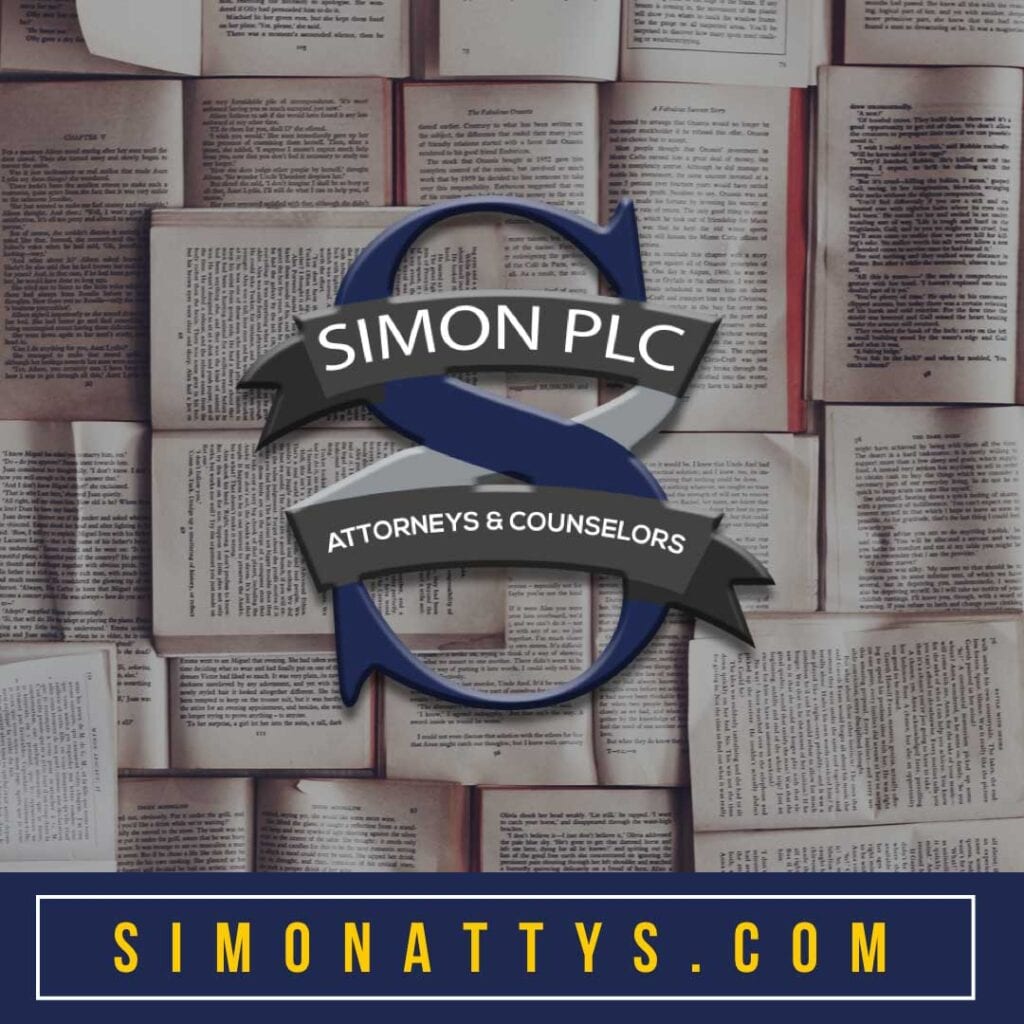Simon PLC Attorneys & Counselors – June 2020 Memorandum
PANDEMIC EVENT ENDORSEMENTS – CAN COVERAGE BE TRIGGERED?
Bloomfield Hills, Michigan – Just over three months ago, as a business owner, you were enjoying the fruits of your labors and an economy driving retail and production. Business was good. Record sales. New customers. New employees hired. Buildouts in the works for expanding your business footprint. Then, you begin to hear about this virus coming into the United States. Information was not complete. Health officials and government agencies were unsure how to react. Next thing you know, orders and guidelines are issued requiring you to either limit or completely shut down your business, including yours, because yours was not designated an “essential business.”
As the dust begins to finally settle, government restrictions ease, and businesses slowly re-open, many are left with the question of whether they can recover some, or all, of their lost income and resulting from COVID-19 related closings. Note that it may not have been the virus, per se, that caused the business closings, but the acts of government through executive, administrative and emergency orders.
You know you have been paying premiums for years on your commercial “all risk” and business insurance policy. You ask, is there a provision in your insurance policy that might help you recover for lost business income and losses from extra expenses? You also ask if there is an exclusion that applies under your policy, prohibiting your claim(s)? This is an analysis that is currently happening with businesses nationwide, and is increasingly becoming a point of contention, and litigation, between insurance companies and their insureds.
Some commercial policies have coverage for loss caused by viruses, including “Pandemic Event Endorsements.” Those should be the easy policies to file a claim with an insurer under – the proverbial low hanging fruit. Sub-limits and other related issues may make filing a claim on that basis less than optimal, however. One also needs to consider the effect of filing a claim on future premiums, where the losses or extra expenses are not so great.
The related litigation activity and current focus of declaratory judgment lawsuits, basically follow a three (3) part and element analysis in determining whether there may be coverage under a policy for loss of business income and extra expenses, where there is no express “Pandemic Event Endorsement,” whether:
(i) a civil authority (city, county or state) has issued an emergency stay at home/business closing order, or designating a business or class of business as “non-essential,” any of which results in reduction or closing of regular and normal operations;
(ii) potential COVID-19 contamination constitutes physical damage or loss; and
(iii) the damage or loss, including physical damage or loss, is either expressly covered by the policy or is not expressly excluded by the policy.
Part (i) should be easily established. Nearly every city, county or state in the U.S. had or still has some form of emergency, administrative or executive order or rules in place, which limited the operations of certain businesses and categories or classes of businesses, in whole or in part. This is in addition to federal guidelines issued by the NIH or CDC, and World Health Organization findings.
As to Part (ii), some courts have held that the presence of a dangerous substance in a property can constitute “physical loss or damage.” See, e.g., Bd. of Educ. of Twp. High Sch. Dist. No. 211 v. Int’l Ins. Co., 720 N.E.2d 622, 625–26 (Ill. Ct. App. 1999), mod. on den. reh’g (Dec. 3, 1999). Courts are split, however, on what form of dangerous substance will trigger coverage. As example, an ammonia release in a building has been held to constitute “direct physical loss of or damage to property,” triggering coverage. Gregory Packaging Inc. v. Travelers, 2014 U.S. Dist. LEXIS 165232 (Dist. N.J. 2014). A federal court in Michigan went in another direction when it found that visual and aerosolized “pervasive odor, mold, and bacterial contamination,” did not create physical or tangible loss or damage to property, to trigger coverage. Universal Image Productions, Inc. v. Chubb Corp., 703 F.Supp.2d. 705 (E.D. Mich. 2010).
As to Part (iii), a failure to expressly exclude under a policy, and exclusion by endorsement, may create an ambiguity which is normally held against the insurer and in favor of coverage. As example, under Michigan law, insurers may limit risks that they elect to assume. When they do so, insurers must clearly express limitations on coverage. Any failure to do so is construed against the insurer and in favor of coverage for the insured and under the policy. Meijer, Inc. v. General Star Indem. Co., 826 F. Supp. 241, 247 (E.D.Mich. 1993) citing Wielinga v. American Way Life Ins. Co., 189 Mich. App. 359, 473 N.W.2d 730, app. den., 439 Mich. 894, 478 N.W.2d 437 (1991); Norgan v. American Way Life Ins. Co., 188 Mich. App. 158, 469 N.W.2d 23, app. den., 439 Mich. 902, 478 N.W.2d 649 (1991).
Parts (ii) and (iii) is where the dispute between insurers and insureds will likely focus. Naturally, the dispute itself will be based on the individual business’ policy in place, and each case and potential outcome will be based on the specific facts and policy terms. We can also expect that courts in different states will have cross and conflicting findings.
Currently, we are aware of class action lawsuits having been commenced against insurers in many states, including in state and federal courts in Illinois, Ohio, Pennsylvania, Florida, Kentucky, New York, California, Louisiana and Arizona. There is no doubt that many more lawsuits will follow, including in other states.
Note that some states including Michigan, New Jersey, New York, Ohio, Louisiana and Pennsylvania are looking at legislation that would require insurers to provide some form of coverage for past and future losses stemming from COVID-19, and possibly in renewed policy terms. This is not happening nationwide, yet. It is doubtful that most businesses are willing to wait for their legislators to act, however. Simon PLC Attorneys & Counselors is ready to assist in reviewing and assessing your policy claims.
N.B. Not Legal Advice: Please contact us if you would like to discuss the facts and circumstances of your specific matter. Simon PLC Attorneys & Counselors expressly disclaims all liability in respect to actions taken or not taken based on any or all the contents of this memorandum. The information contained herein may not reflect current legal developments and is provided without any knowledge as to the recipient’s location, industry, identity or specific circumstances. No recipients of this content, clients or otherwise, should act, or refrain from acting, on the basis of any content included in this memorandum without seeking the appropriate legal or other professional advice on the particular facts and circumstances at issue from an attorney licensed in the jurisdiction for which the recipient’s legal issue(s) involve. The application and impact of relevant laws varies from jurisdiction to jurisdiction, and our attorneys do not seek to practice law in states, territories and foreign countries where they are not properly authorized to do so.

